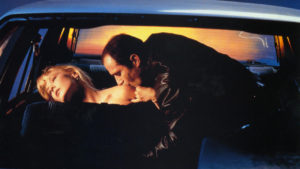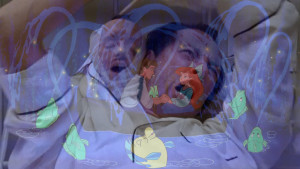Last year Kristen Bell and Rob Thomas (Party Down, not Matchbox 20) took to Kickstarter in an attempt to revive their beloved series, Veronica Mars, as a film following its cancellation in 2007. Although I was, by that point, very much a fan, I did not donate to the Kickstarter, less out of ethical objections — big projects eclipsing smaller ones, crowdfunding a Warner Bros. picture — than out of plain old being broke. But my lack of contribution didn’t matter, as the Veronica Mars movie was soon well beyond funded and a long desired reunion was finally a reality. Dreams do get crowdfunded. Now, a year after the launch of the campaign,Veronica Mars has been released and it’s a funny, taut and immensely satisfying, if insular, return for Neptune’s greatest amateur detective.
Ten years removed from Neptune High, Veronica Mars (Bell) is pursuing a career as a sure-to-be hotshot lawyer in New York City with her NPR reporter boyfriend Stosh Piznarski (Chris Lowell), when a call from old flame Logan Echolls (Jason Dohring) — accused of the murder of his popstar ex-girlfriend — beckons her back to her hometown. Veronica finds her hometown much as she left it, embroiled in the escalating class war that framed much of the show’s drama. After reconnecting with her father (Enrico Colantoni) and friends Wallace (Percy Daggs III) and Mac (Tina Majorino), Veronica sets out to do what she hasn’t done in 9 years: solve a mystery.
Bell is as magnetic as ever, slipping back into her iconic role naturally and gracefully. Thanks to a Veronica who has grown in her years away, Bell, now 33, isn’t forced to play the same 19-year-old girl she used to. Time away from Neptune hasn’t changed Veronica that much — she’s still quick with a quip and as charming as ever — but she’s older, wiser, and generally more in-tune with what she wants out of life. Veronica’s new sense of self feels like a proper continuation of the end of the last season, and Bell conveys the subtleties and contradictions of her new-found maturity with an ease that keeps both those signature one-liners and emotional moments feeling fresh and natural.
The spaces and people around Veronica have mostly experienced similar growth, with old friends and enemies occupying positions that logically follow old character arcs. Familiar faces seem to be where they should be in life, even if their paths are initially unexpected. Even the rare lack of change in a character — yes, Dick Casablancas — is fitting, and Veronica Mars’ central high school reunion works as a clever bit of framing that mirrors the film’s feeling of catching up with old friends. But while this will bring joy to those who are already fans, it is a quality that can often make Veronica Mars feel insular and exclusive.
Veronica Mars is a film very much made for its fans to the risk of alienating everyone else as it is littered with in-jokes and cameos that make up a ton of unapologetic fanservice which nevertheless often advances the core plot. The most important relationships in the film — those Veronica has with Logan, her father and Neptune itself — were established over the course of 64 episodes, and aside from a quick recap at the top of the film,Veronica Mars does little to fill first-timers in. It’s not that Veronica’s interactions are uninteresting without that backstory — Bell has undeniable chemistry with Dohring, and her scenes with Colantoni construct one of the most electric father-daughter dynamics in all media — but they build on that reference point and are, of course, more affecting if you have prior investment.
Aesthetically, the film sticks to the look, feel and tone of the show, which balanced a light, bouncy view of southern California and a colorful palette with a noir edge that categorized many of the show’s most climactic moments. In its third act, which sees the film explode from character driven mystery to a tense thriller a la the first season finale, Veronica Mars displays its most cinematic photography, with strong shadows cast across spaces both wide and small creating a tension that smoothly shifts from claustrophobic to agoraphobic and back. Up to that point, composition and other visual aesthetics are never weak, but can often feel more characteristic of a television show than a film, sometimes making Veronica Mars feel like it belongs on the small screen as two and a half episodes of the show. But the theatrical release of the film and the look of its climax suggest that such an aesthetic divide may be useless; films based on TV series often fail not because they don’t fit a prescribed aesthetic notion of cinema but because they don’t feel like their source material. Veronica Mars, the movie, succeeds precisely because it never feels like anything less than Veronica Mars, the series.
—
Veronica Mars is currently playing in theatres everywhere, and is available for digital purchase on Amazon.
Directed by Rob Thomas; written by Rob Thomas and Diane Ruggiero, based on the television show created by Rob Thomas; starring Kristen Bell, Jason Dohring, Krysten Ritter, Ryan Hansen, Francis Capra, Percy Daggs III, Chris Lowell, and Tina Majorino; 107 minutes.




 Derek
Derek
 Isabelle
Isabelle